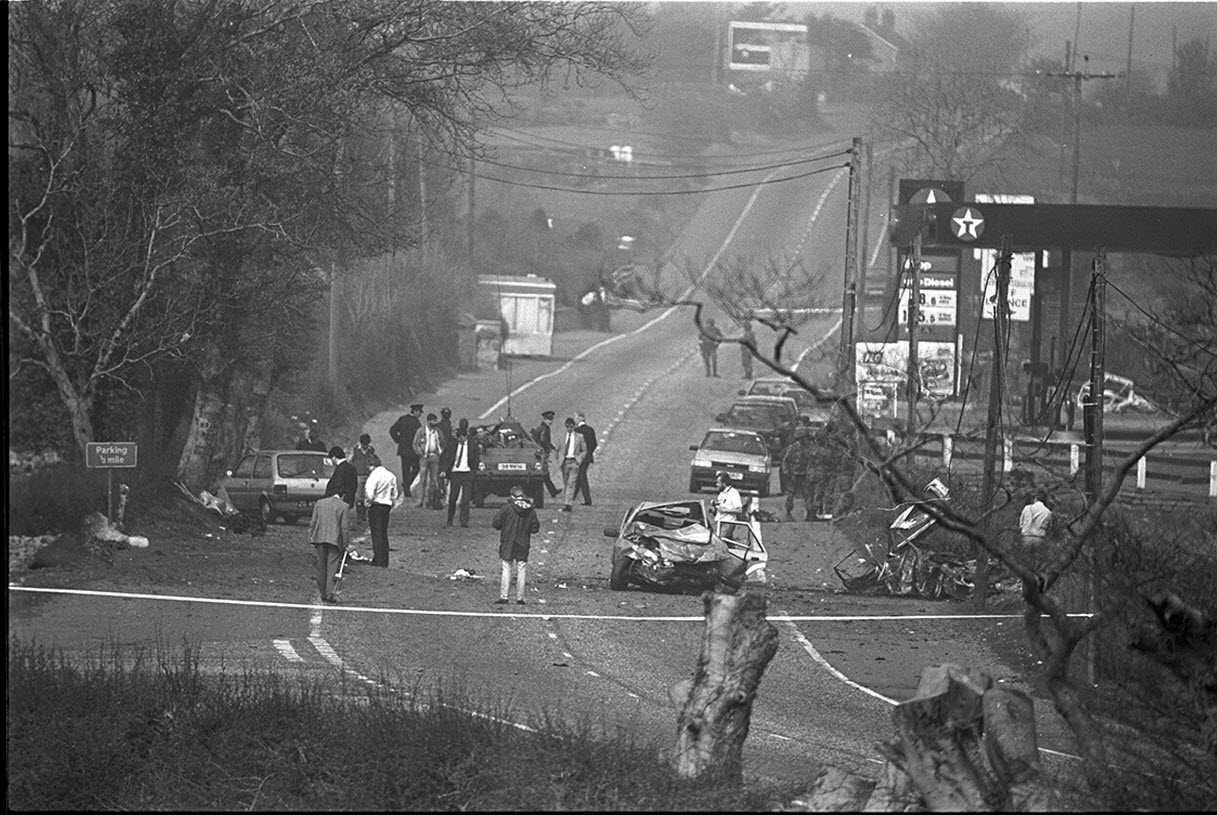We can all think of memorable novels that have had their conceptual and narrative core located within ‘the troubles’ in Northern Ireland.
Still more material has been mined through adaptations of autobiographies or memoirs from ‘combatants’ of the conflict. Plots have generally been driven by tense dénouement involving betrayal and counter -betrayal by security forces and terrorists.
Wars don’t end when the fighting stops of course. And there have been a number of more recent crime novels that have sought to place dissidents at the centre of their work. But again, these plot lines tend toward the shoot out or ticking time bomb.
I have always liked Alex Schmid’s [1] analogy of why context is important: focusing on terrorist groups and cops alone is like focusing on one player in a tennis match, you are going to miss so much more of the dynamics if you only focus on one part of it.
It is perhaps the internal, intra-personal struggles that continue within everyday citizens affected by the conflict – and within those who wrestle with their involvement in questionable acts with dubious justifications – that hold the richest material for crime fiction (and literary fiction) in this context. Indeed the very pacificity of looking on voyeuristically from a safe North Down idyll may also stir some crisis of conscience for an author or character.
Ordinary people whose lives have been rendered extraordinary by the exceptional circumstances that they have lived through. In short, all of us who generationally have had the misfortune to have the conflict define us in some way, however peripheral.
It can be something as oppressive as standing behind police tape in central London in the 1980’s – petrified to open your mouth and reveal your accent – as they clear the area of a suspect device. Or something as seemingly irrelevant as telling the American bloke sat next to you – around the pool whilst on holiday – that you are from Belfast and then mentally preparing for the ‘war baby’ questions and explanations.
That default of popular fiction, the ‘internal monologue’ has never been better served in this regard.
There is a school of thought of course that would seek to bury our heads in the sand. To cite the necessity to’ move on’ not ‘dwell in the past’ put things ‘behind us’. But like it or not, to some degree the conflict has demarcated who we are today.
So representing fictional characters in contemporary, post-conflict, Northern Ireland, takes on a particular challenge for an author. One that is simultaneously (one hopes) compelling but which also carries a ‘duty of care’ to be faithful to the implicit or explicit loss of innocence that we all experienced during those dark days.
And of course any emerging post-conflict canon or genre that explores the legacy of conflict and how it impacts on those who seek to build a future in its aftermath, should also perhaps usefully explore characters drawn from the younger, post conflict generation.
Here is a peer group feasibly uncomfortable with the traditional religio-political stereo-types foisted upon them and refreshingly honest in their opinions based on their own lived experiences.
What has growing up with the spectres of the past meant for them?
In my own novel, ‘White Church, Black Mountain’ the chief protagonist, Eban Barnard, carries with him throughout his life, a secret that has coloured and defined his relationships with others and with his own self-image.
As he and other characters in the novel struggle with the legacy of the past, we learn something of the challenges that they face.
“When they arrived to take him to theatre sometime after that, he was ready.
One of the porters wheeling his trolley spoke of the breaking news story on morning radio.
Of how the Attorney General was talking complete amnesty for all past crimes.
A move that would render all those involved in terrorist and sectarian crime exempt from prosecution.
The porter told the nurse, it was all about “…making peace with the past.”
But where would he find his peace?
He had carried around his guilt and his frustration for a lifetime…and for what?
‘No one cares about the victims…the families…the dead…and those left behind them,’ he thought. ‘Their heartbreak, their long, slow, lonely creep toward the end without their loved ones…’
They were made to feel like the ghosts at the peace.
Expected to keep quiet for the sake of the next generation.
For the sake of a future they couldn’t share in.
An awkward, tragic postscript that belonged to the newsreels.
To be consigned there and forgotten save for empty platitudes and memorial Sundays in draughty churches.”
Flags, Emblems… The Past.
Like Macbeth’s three witches prophesising “Double, double toil and trouble; Fire burn, and caldron bubble”, these three seemingly insurmountable challenges continue to disproportionately influence civil society in the Province.
Perhaps contemporary, post-conflict Northern Irish literature can play a cathartic role in steering us out of the cul-de-sacs of the past, where lazy, stereo-typical characterisations can recede in the rear-view mirror of experiences that inform but do not define us.
[1] Swiss-born Dutch scholar in Terrorism Studies and former Officer-in-Charge of the Terrorism Prevention Branch of the United Nations
Dr Thomas Paul Burgess is Senior Lecturer at the School of Applied Social Studies, University College Cork. His new novel ‘White Church, Black Mountain’ is now available. He is also the co-author of ‘The Contested Identities of Ulster Protestants‘.
This is a guest slot to give a platform for new writers either as a one off, or a prelude to becoming part of the regular Slugger team.
Discover more from Slugger O'Toole
Subscribe to get the latest posts to your email.
